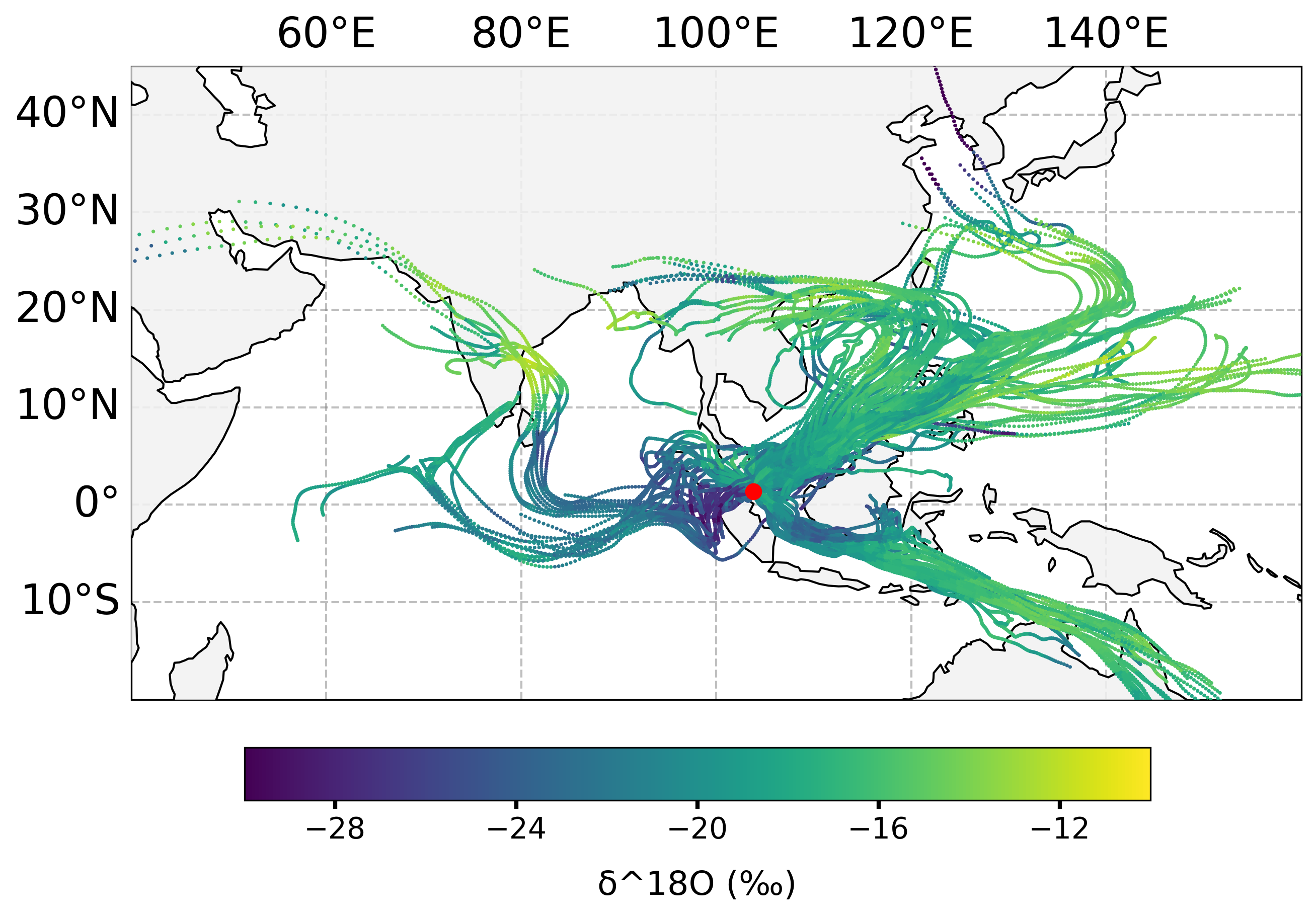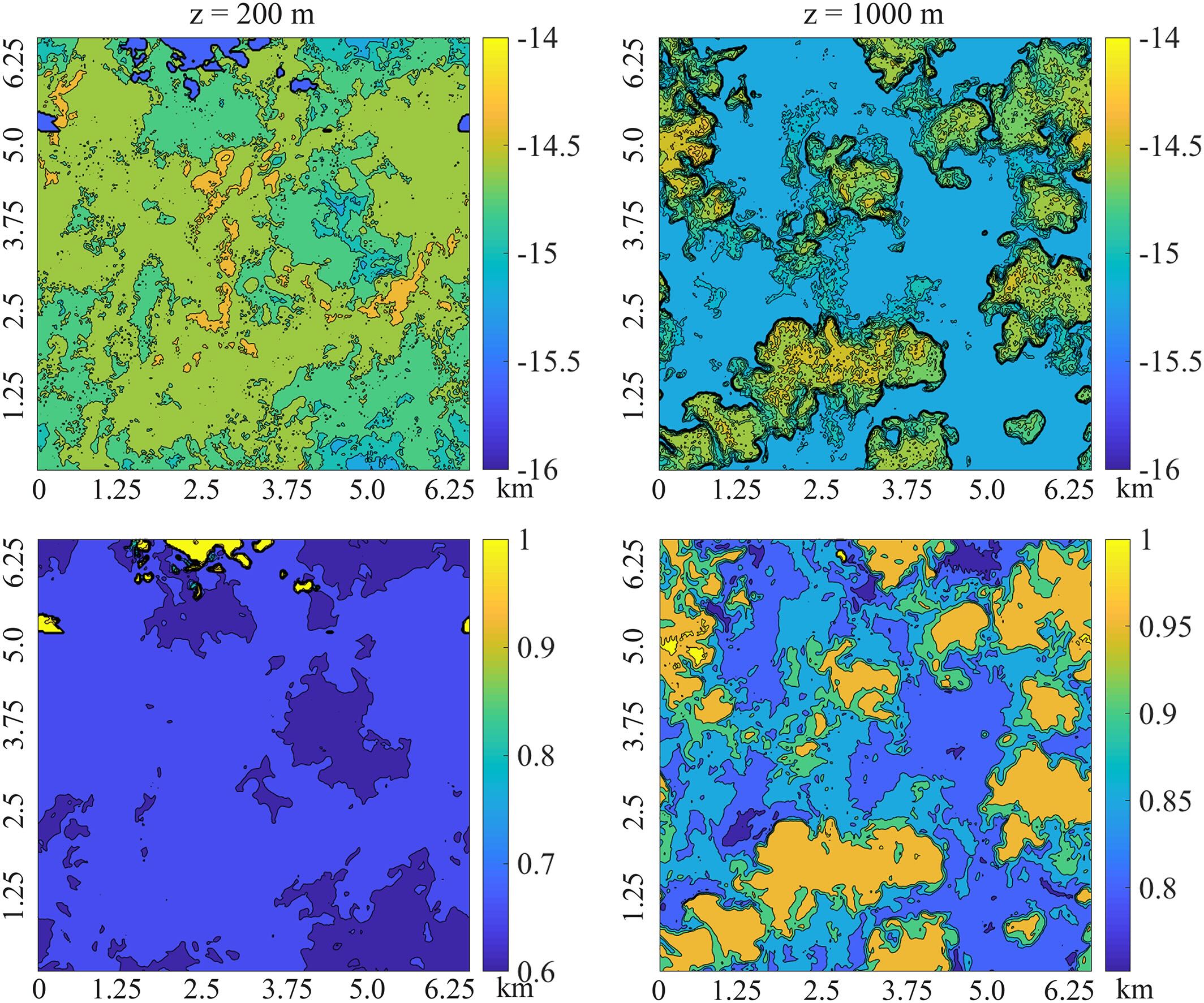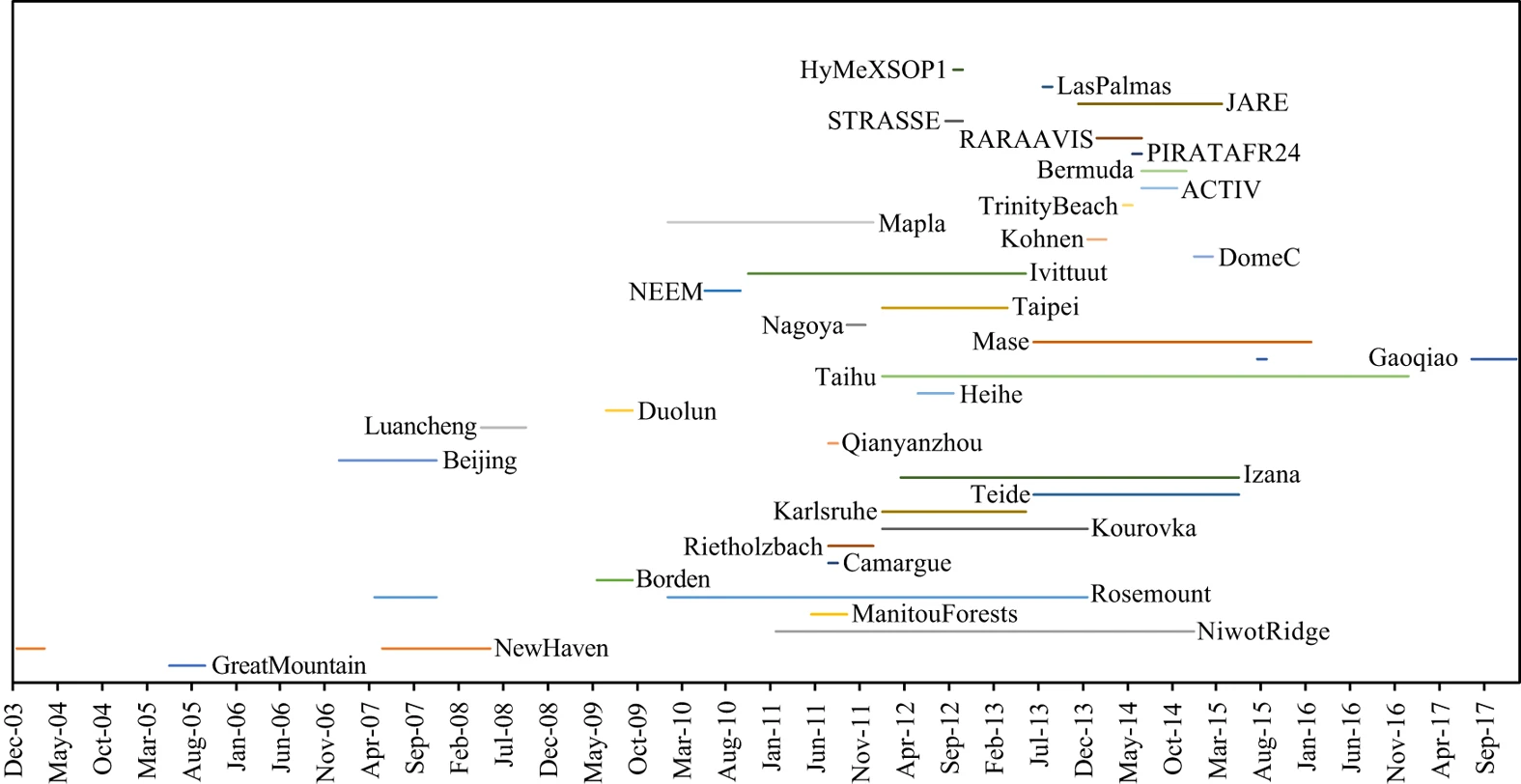Isotope Hydrology and Meteorology
Isotope Hydrology and Meteorology Research
Isotope Hydrology and Meteorology Research
Isotope hydrology and meteorology is an important discipline that studies isotope fractionation, transport, and mixing in water cycle processes. By tracking changes in hydrogen and oxygen isotope composition in water molecules, we can deeply understand the physical mechanisms of the water cycle, identify water sources, and assess the impact of climate change on the water cycle. Our research covers multiple levels from microscopic isotope fractionation processes to global-scale water cycle simulation.
Core Research Directions
Isotope Fractionation Mechanisms and Processes
- Isotope fractionation mechanisms during evapotranspiration processes
- Isotopic distinction between plant transpiration and soil evaporation
- Isotope fractionation effects in cloud physics processes
- Isotope fractionation patterns during precipitation processes
Isotope Tracer Technology Applications
- Using isotope techniques to partition evapotranspiration components (transpiration vs evaporation)
- Water source identification and pathway tracing
- Watershed-scale water cycle isotope tracing

Isotope Modeling and Simulation
- Isotope process parameterization in land surface models
- Atmospheric boundary layer isotope transport simulation
- Global-scale isotope cycle modeling

Observation Techniques and Methods
- High-frequency isotope observation technology development
- Multi-scale isotope observation network construction
- Isotope observation quality control methods
- New isotope observation instrument applications

Technical Features
IsoLESC Coupled Modeling System
- Coupling of Large Eddy Simulation (LES) with isotope transport
- Isotope processes in Land Surface Models (LSM)
- Isotope fractionation in cloud microphysics processes
- High-resolution simulation of boundary layer isotope transport
Multi-Scale Observation Capabilities
- Site-scale high-frequency isotope observations
- Regional-scale isotope observation networks
- Global isotope database construction
- Multi-platform isotope observation technology
Theoretical Innovation and Applications
- New developments in isotope fractionation theory
- Applications of isotopes in climate change research
- Applications of isotopes in eco-hydrology research
- Applications of isotopes in agricultural hydrology research
Application Areas
- Climate Change Research: Reconstructing paleoclimate using isotope records
- Hydrological Cycle Research: Identifying water sources and transport pathways
- Eco-Hydrology Research: Studying plant water use strategies
- Agricultural Hydrology Research: Assessing irrigation efficiency and water use
- Environmental Monitoring: Monitoring water pollution and water quality changes
Open Research Topics
Open Research Topics
Isotope hydrology and meteorology research offers rich research opportunities for graduate students and collaborators. The following are our current research focuses:
We welcome graduate students and collaborators interested in any of the above topics to contact us and jointly advance the innovative development of isotope hydrology and meteorology research!
Selected Related Publications (# indicates corresponding author):
-
Wei, Z.#, Lee, X., Patton, E. G. (2018). IsoLESC: A coupled isotope-LSM-LES-cloud modeling system to investigate the water budget in the atmospheric boundary layer. Journal of Advances in Modeling Earth Systems, 10, 2589-2617.
-
Wei, Z.#, Yoshimura, K., Okazaki, A., Kim, W., Liu, Z., Yokoi, M. (2015). Partitioning of evapotranspiration using high-frequency water vapor isotopic measurement over a rice paddy field. Water Resources Research, 51(5), 3716-3729.
-
Wei, Z.#, Lee, X., Aemisegger, F., Benetti, M., Berkelhammer, M., Casado, M., Caylor, K., Christner, E., Dyroff, C., Garcia, O., González, Y., Griffis, T., Kurita, N., Liang, J., Liang, M.-C., Lin, G., Noone, D., Gribanov, K., Munksgaard, N., Schneider, M., Ritter, F., Steen-Larsen, H., Vallet Coulomb, C., Wen, X., Wright, J. S., Xiao, W., Yoshimura, K. (2019). A global database of water vapor isotopes measured with high temporal resolution infrared laser spectroscopy. Scientific Data, 6, 180302.
-
Xiao, W.#, Wei, Z.#, Wen, X. (2018). Evapotranspiration partitioning at the ecosystem scale using the stable isotope method - A review. Agricultural and Forest Meteorology, 263, 346-361.
-
Wei, Z.#, Lee, X., Xiao, W., Wen, X. (2018). Evapotranspiration partitioning for three agro-ecosystems with contrasting moisture conditions: a comparison of an isotope method and a two-source model calculation. Agricultural and Forest Meteorology, 252, 296-310.
-
Wei, Z.#, Lee, X., Seeboonruang, U., Koike, M., Yoshimura, K. (2018). Influences of large-scale convection and moisture source on monthly precipitation isotope ratios observed in Thailand, Southeast Asia. Earth and Planetary Science Letters, 488, 181-192.
-
Wei, Z.#, Lee, X. (2019). The utility of near-surface water vapor deuterium excess as an indicator of atmospheric moisture source. Journal of Hydrology, 577, 123923.
-
Wei, Z.#, Yoshimura, K., Okazaki, A., Ono, K., Kim, W., Yokoi, M., Lai, C.-T. (2016). Understanding the variability of water isotopologues in near-surface atmospheric moisture over a humid subtropical rice paddy in Tsukuba, Japan. Journal of Hydrology, 533, 91-102.
-
Wei, Z.#, Yoshimura, K., Okazaki, A., Kim, W., Liu, Z., Yokoi, M. (2014). INVESTIGATING VEGETATION-ATMOSPHERE WATER EXCHANGE BY USING HIGH FREQUENCY SPECTROSCOPY VAPOR ISOTOPE OBSERVATIONS. JSCE, 58, 181-186.
-
More related research results will be published successively…